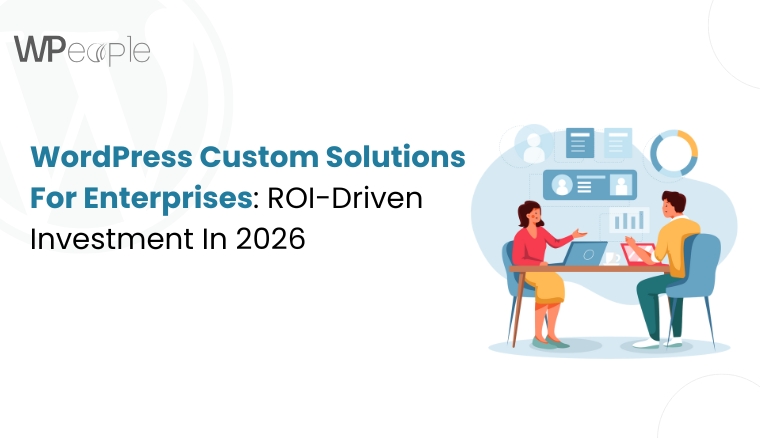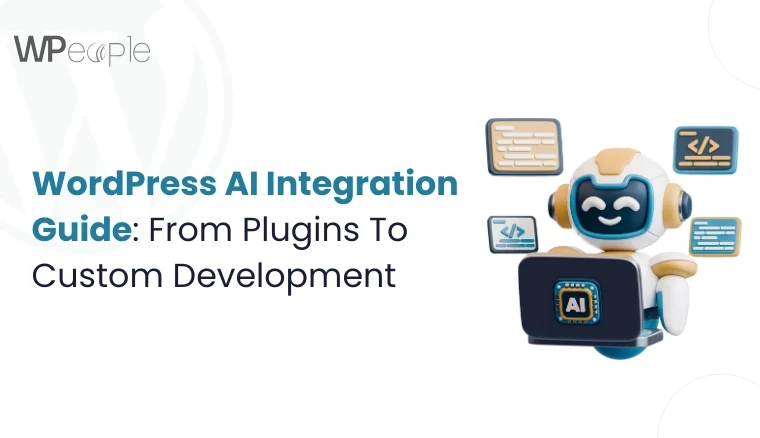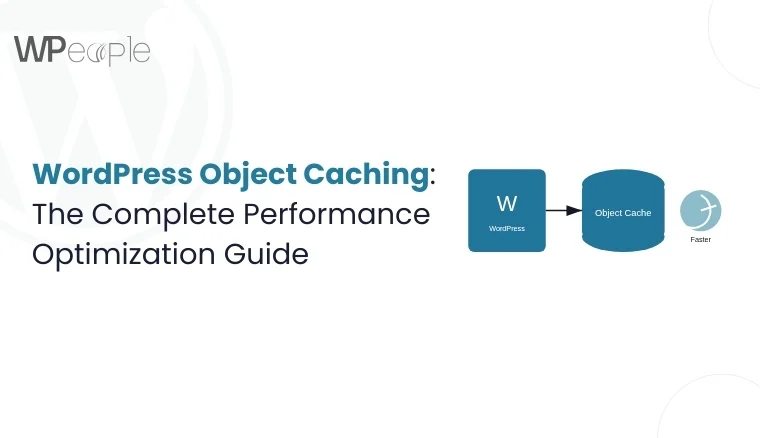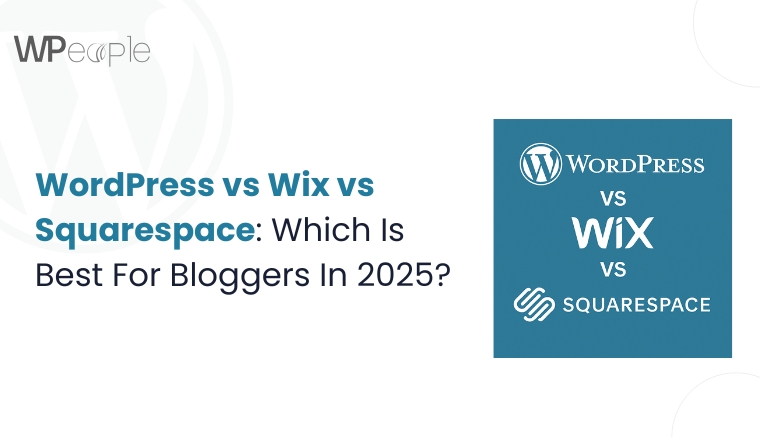
You will be surprised to know that over 600 million blogs compete for attention online in 2025. And here’s the catch: great content alone isn’t enough anymore. If your blogging platform is heavy, hard to scale, or fails to support your vision, it can quietly sabotage your growth before it even begins.
So, here’s the question: Which website builder truly sets you up for blogging success in 2025: WordPress, Wix, or Squarespace?
If you’ve been scratching your head over this, you’re not alone. Each platform markets itself as “the best,” but bloggers need more than marketing fluff. They need clarity, functionality, SEO power, design freedom, and scalability.
We have thoughtfully curated this guide for content creators, bloggers, side hustlers, and online entrepreneurs who want no-nonsense insights about choosing the right foundation for long-term blogging success.
We’ve tested, researched, and broken it all down for you. From AI-powered tools and SEO performance to design flexibility and real-world use cases, this guide will uncover the truth behind the top three blogging platforms in 2025.
Get ready to meet the perfect fit for your content goals.
And guess what? One of these platforms has recently rolled out an AI-driven design assistant that builds your blog layout in under 5 minutes. Curious which one? The answer lies just a few scrolls down.
Let’s dive in.
Why Choosing The Right Website Builder Is Critical For Bloggers In 2025
In 2025, blogging isn’t just about writing. It’s a business, a brand, and a full-time income stream for many. Your blogging platform is not just a canvas; it’s your toolkit, your storefront, and your growth engine.
Choosing the wrong platform can mean:
- Poor SEO visibility
- Limited customization and scalability
- Higher costs with fewer features
- Frustrating migration down the line
In contrast, the right platform will open doors to amplified search rankings, faster publishing, greater control, and, ultimately, more revenue from your content.
With AI-assisted content tools, built-in marketing integrations, and changing user expectations, 2025 demands more from blogging platforms than ever before. You need one that evolves with technology, adapts to your niche, and supports growth without holding you back.
Whether you’re a beginner looking for ease or an experienced blogger craving flexibility and monetization, this decision will shape your upcoming years.
What This Means For You: The website builder you choose in 2025 will directly impact your blog’s reach, monetization potential, and long-term success. Ensure it aligns with your goals and not just your current skill level.
What To Look for In A Blogging Platform
With numerous website builders available today, selecting the ideal one starts with knowing what truly matters to a blogger. A spectacular blogging platform does more than just publish posts; it empowers you to grow, rank, engage, and earn.
Let’s break down the essentials every blogger should consider in 2025.
Vital Features For Bloggers
Blogging in 2025 means competing in a dynamic, content-rich world. That means you need a platform that supports:
- Seamless content creation and formatting
- Built-in or flexible content scheduling tools
- Mobile responsiveness
- Swift-loading pages
- Integration with tools like email marketing, analytics, and social sharing
Key Considerations For Bloggers
Content Management
Your platform should make it straightforward to organize, edit, and structure blog posts. A powerful editor with media management, categories, tags, and SEO inputs is non-negotiable.
SEO Tools
Search engines are still a primary traffic source for bloggers. Look for platforms with solid SEO support, whether built-in or via third-party tools. Metadata control, URL customization, schema markup, and sitemaps all contribute to better rankings.
Flexibility And Customization
As your blogging website grows, you may want more features, a new layout, or specific plugins. Hence, choose a platform that lets you evolve rather than outgrow your ambitions.
Monetization Options
Affiliate marketing, digital product sales, subscriptions, ads, and sponsorships are income streams for Millennials and Gen Z bloggers. Hence, your platform must accommodate these strategies without needing complex workarounds.
Ownership And Control
Many platforms offer convenience but restrict true ownership. Ideally, you want complete control over your domain, content, backups, and monetization methods.
Why This Matters In 2025: The blogging landscape is no longer just about writing. From AI integrations and voice search to visual-first design and mobile prioritization, your platform must be equipped to support next-generation blogging.
WordPress In 2025: Features, Pros, And Cons
What Is WordPress.org?
WordPress.org is the self-hosted version of WordPress, the most illustrious content management system in the world. It powers over 40 percent of all websites today and remains a foremost choice for bloggers who want complete authority, customization, and ownership.
Unlike platforms that bundle hosting, design, and tools into a single package, WordPress.org requires you to set up your own hosting, select themes, and install plugins. However, that added responsibility comes with unmatched creative freedom.
WordPress Key Features For Bloggers In 2025
Gutenberg 3.0 And Beyond
The block editor has evolved into a robust, comprehensive website editing tool that allows bloggers to visually create dynamic layouts, reusable blocks, and custom content areas without relying heavily on code.
Plugin Ecosystem
With over 59,000 free plugins and thousands of premium options, WordPress empowers you to add contact forms, SEO tools, eCommerce functionality, speed optimization, security, and AI-powered enhancements.
AI Integration
You get ingenious features, from AI writing assistants to smart SEO suggestions and personalized content recommendations. WordPress plugins now leverage AI to help bloggers create and manage content more efficiently.
Full Control And Ownership
Your content, domain, and data are 100% yours. You decide where and how your blog is hosted, backed up, monetized, and maintained.
Pros And Cons Of Using WordPress
| Pros | Cons |
| Unparalleled customization and flexibility | Requires hosting setup and maintenance |
| Massive plugin and theme ecosystem | Steeper learning curve for beginners |
| Strong SEO potential with tools like Rank Math, Yoast | Website performance depends on the choice of theme, plugins, and hosting |
| Full ownership of your website | Security and backup are your responsibility |
| Scales effortlessly with your blog’s growth | Can be overwhelming for casual or hobby bloggers |
Best Use Cases: Who Should Choose WordPress?
- Bloggers who want total freedom over their website and content
- Content creators planning to scale or monetize in diverse ways
- SEO-focused bloggers aiming for organic traffic growth
- Bloggers with some technical confidence or access to developer support
What You Should Know: WordPress.org is ideal for serious bloggers who want full control, long-term growth potential, and access to powerful SEO and customization tools. If you’re ready to invest a little time to gain a lot of flexibility, this is the platform for you.
Wix In 2025: Features, Pros, And Cons
What Is Wix?
Wix is a fully hosted, drag-and-drop website builder that has evolved substantially over the years. It is highly preferred for its simplicity, speed, and visual design interface.
With everything bundled into one platform, from hosting and design tools to templates, apps, and support, Wix is incredibly appealing to bloggers who want a no-fuss, all-in-one solution to start quickly.
Wix Key Features For Bloggers In 2025
Wix Studio And AI Website Builder
Wix’s AI tools now allow users to generate entire blog layouts, color palettes, and content structures just by answering a few questions. It’s a time-saving, beginner-friendly innovation for new bloggers.
Integrated Marketing Tools
It offers email campaign tools, social media integrations, analytics dashboards, and pop-up forms. Wix has matured into a strong contender because of its built-in marketing features customized to growing blogs.
Template Library And Visual Editor
Over 800 designer-made templates are available, catering to various niches. The drag-and-drop builder lets users visually place elements wherever they want without coding expertise.
App Market
Although not as significant as WordPress’s plugin library, the Wix App Market offers a broad range of add-ons, including blogging tools, eCommerce features, chatbots, and more.
Pros And Cons Of Using Wix
| Pros | Cons |
| Easiest learning curve with drag-and-drop editing | Limited customization compared to open-source platforms |
| Built-in hosting, security, and updates | Cannot switch templates after publishing without rebuilding the site |
| AI-assisted design and setup process | Fewer third-party integrations than WordPress |
| Good range of modern templates and visual tools | Less suited for large-scale blogs or deeply customized workflows |
| All-in-one platform for blogging, marketing, and design | Minor flexibility in managing backend functionality or fine-tuning performance |
Best Use Cases: Who Should Choose Wix?
- First-time bloggers with no technical experience
- Lifestyle bloggers who prioritize design over in-depth customization
- Users who want to focus on content creation without backend hassle
- Bloggers looking for a quick setup and integrated marketing options
The Bottom Line: Wix is perfect for beginners who want to start blogging fast without getting bogged down by technical setup. Wix simplifies your blogging journey with its intuitive tools, AI builder, and bundled features while offering decent creative flexibility.
Squarespace In 2025: Features, Pros, And Cons
What Is Squarespace?
Squarespace is a sleek, all-in-one website builder known for its award-winning templates and refined design experience. It is built for creatives, artists, and storytellers.
It focuses on delivering a visually captivating web presence with minimal effort. Its streamlined interface makes it an excellent choice for bloggers who care deeply about aesthetic presentation without diving into complex customization.
Updated Tools And Design Capabilities In 2025
AI Styling Assistant
Squarespace now includes AI-powered design suggestions that help bloggers match typography, color palettes, and layout styles to their brand identity. It is best for bloggers seeking a curated visual look.
Enhanced Commerce And Membership Features
2025 brings rock-solid support for monetization with gated content, membership subscriptions, and digital product sales built directly into the platform.
Built-In Marketing And SEO Tools
Squarespace includes integrated email campaigns, scheduling tools, and SEO settings. This makes it easier to manage outreach and visibility from one dashboard.
Content Blocks And Page Editor Improvements
New advancements to the drag-and-drop page builder make adding dynamic blog content more intuitive and versatile than before.
Pros And Cons Of Using Squarespace
| Pros | Cons |
| Visually stunning templates with polished design | Limited plugin or third-party app integration |
| Easy-to-use editor with modern features | Customization requires code for high-end tweaks |
| Ideal for portfolios, photo-heavy blogs, and creatives | Not the best option for large-scale or highly functional blogs |
| Built-in email marketing and eCommerce options | Fewer SEO features and optimization controls compared to WordPress |
| Reliable hosting and security handled by Squarespace | Template lock-in makes major redesigns more complex after website launch |
Best Use Cases: Who Should Choose Squarespace?
- Bloggers who prioritize visual storytelling and elegant layouts
- Creatives, photographers, and lifestyle bloggers
- Those who prefer a minimal learning curve and value built-in tools
- Users interested in launching small-scale subscription or portfolio blogs
Core Insight: Squarespace is ideal for bloggers who want a visually captivating and professional-looking blog without designing from scratch. Though it is not as flexible as WordPress, it is perfect for those who value elegance, simplicity, and storytelling.

Head-To-Head Comparison: WordPress vs. Wix vs. Squarespace
Making an informed decision is challenging as endless features and platforms compete for attention. Let’s compare WordPress, Wix, and Squarespace across the most critical areas for bloggers in 2025.
Visual Breakdown Of Each Platform Comparison
| Feature | WordPress | Wix | Squarespace |
| Ease of Use | Moderate learning curve, requires setup & upkeep | Beginner-friendly, drag-and-drop simplicity | Very easy with guided setup and polished interface |
| Design & Customization | Fully customizable with themes and builders | Limited template switching, some drag flexibility | Visually stunning templates and fewer customization options |
| Plugins & Integrations | 59,000+ plugins and vast integrations | Smaller app market, not substantial advanced integrations | Limited apps, mostly built-in features |
| SEO Capabilities | Best-in-class with plugins like Rank Math, Yoast | Improved SEO tools with AI-guided setup | Decent SEO tools, less flexible than WordPress |
| Pricing & Value | Flexible pricing depending on needs | Predictable pricing, all-in-one | All-in-one pricing, slightly premium |
| Scalability & Ownership | Fully scalable, complete site ownership | Less scalable, limited ownership | Moderate scalability, platform-owned hosting |
Final Winner In Each Category
| Category | Winner | Why It Wins |
| Ease of Use | Wix | Offers unmatched simplicity and quick setup |
| Design & Aesthetics | Squarespace | Excels in beautiful, ready-to-use design |
| Flexibility | WordPress | Endless customization through themes and plugins |
| SEO Optimization | WordPress | Industry-leading SEO tools and more significant control |
| Pricing | Depends on need | WordPress is flexible, while Wix and Squarespace offer predictable all-in-one rates |
| Scalability | WordPress | Built for growth, ideal for long-term expansion |
Quick Comparison Table: Platform Summary For Bloggers
| Platform | Best For |
| WordPress | Advanced bloggers needing complete control, SEO, and scalability |
| Wix | Beginners seeking a quick setup and ease of use |
| Squarespace | Creatives who want sleek design and minimal technical involvement |
Platform Comparison Summary
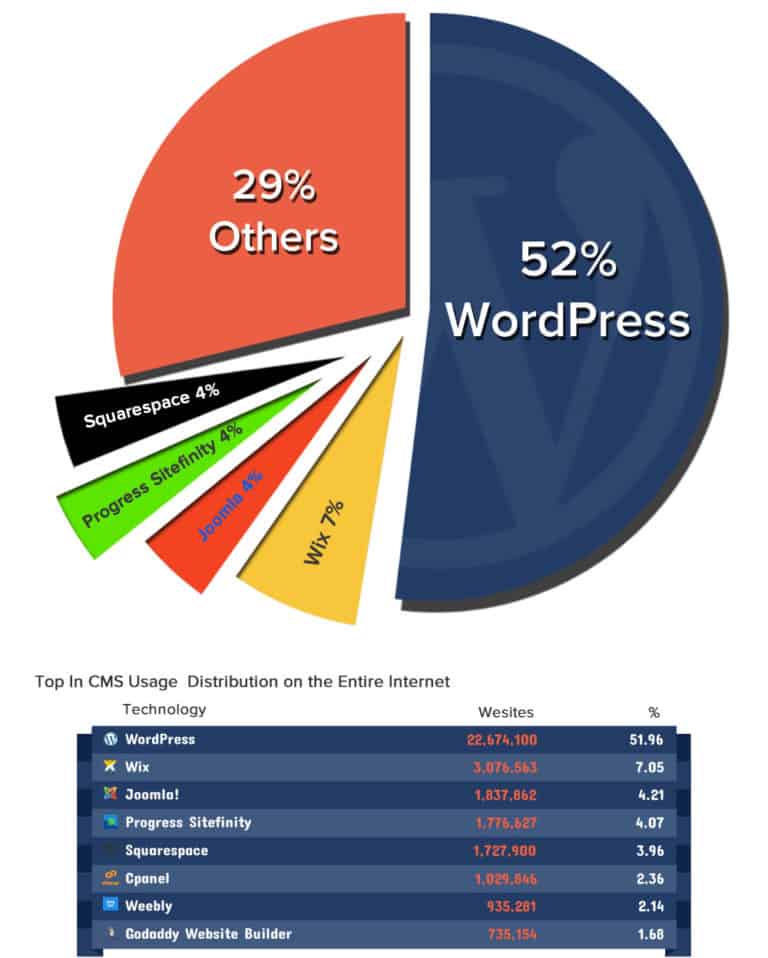
Smart Summary: Each platform thrives in different areas. WordPress wins for long-term growth and customization, Wix for ease of use, and Squarespace for stunning visuals. The most suitable choice depends on your goals, skills, and the kind of blog you want to build.
Real-World Use Cases Of Each Website Builder
Understanding platforms is one thing, but knowing how they perform in real-life scenarios makes all the difference. Below are practical examples that highlight which builder works perfectly for specific blogging needs.
WordPress: For Growth-Focused Bloggers & Niche Experts
Use Case: Emma, a travel blogger with monetization goals
Emma wants total freedom over her content layout, access to the latest SEO tools, and the ability to scale her website as she grows her audience. She uses plugins like Rank Math, WooCommerce, and newsletter tools to turn her blog into a full-fledged business.
WordPress gives her the flexibility to manage ads, affiliate links, and custom designs for her brand.
Best Fit:
- Professional bloggers
- Content marketers
- Bloggers aiming to scale and monetize
Wix: For First-Time Bloggers & Personal Journals
Use Case: Jake, a lifestyle blogger with no technical background
Jake just wants to blog about his daily life, hobbies, and travel experiences without worrying about plugins, hosting, or maintenance. Wix’s drag-and-drop interface will enable him to rapidly build an aesthetic website. Moreover, he will have enough tools to grow his online presence over time.
Best Fit:
- Hobby bloggers
- First-time bloggers
- Bloggers who want a quick setup without tech hassle
Squarespace: For Creatives & Design-Led Storytellers
Use Case: June, a photographer and blogger
June wants her visuals to shine and prefers a minimalist, elegant design. Squarespace gives her beautifully structured templates with just enough control to personalize her website.
She doesn’t need extensive third-party plugins or complex SEO tools. She just needs a sleek and stylish platform to showcase her stories and images.
Best Fit:
- Creative professionals
- Visual storytellers
- Bloggers who prioritize aesthetics
Knowledge Drop: Think beyond features. Consider your goals, tech comfort, and content style. Whether you’re a creative, a beginner, or a future digital entrepreneur, there’s a perfect fit among WordPress, Wix, or Squarespace.
Final Verdict: Which One Should You Pick?
Choosing the right blogging platform isn’t about what’s most popular; it’s about what fits your personal goals, technical comfort, and long-term vision.
WordPress.org is the most suitable choice if you want total freedom, scalability, and flexibility to evolve your blog into a business or large content hub. Its massive ecosystem of themes, plugins, and customization options is unparalleled.
Wix is a solid, beginner-friendly option if you’re just starting, want a quick setup, and don’t want to deal with hosting or maintenance. It lets you publish rapidly without worrying about technical setup.
Squarespace is a perfect option if you’re a creative storyteller or visual content creator looking for an elegant, stylish blog that’s easy to use. It offers visually stunning templates with just enough features to power your blog beautifully.
Who Should Pick What?
| Blogger Type | Recommended Platform |
| Beginners with no tech skills | Wix |
| Creatives, photographers | Squarespace |
| Growth-focused bloggers | WordPress |
| Niche experts/content marketers | WordPress |
| Personal or hobby bloggers | Wix or Squarespace |
| eCommerce bloggers | WordPress |
Tips For Making The Right Decision
- Consider your future goals. Will your blog remain a hobby, or do you plan to monetize it?
- Evaluate your comfort level. Do you enjoy tweaking things, or do you prefer plug-and-play?
- Think about design vs control. Is looks more important than functionality, or do you want both?
Final Thought: No matter which platform you choose, the key to success is consistent, high-quality content. Focus on sharing your voice and providing value. Fancy designs are eye-pleasing, but meaningful content is what truly makes your blog stand out. Keep writing, and prosperity will follow!
Must-Know Insight: Your blogging journey is unique. Hence, select the platform that not only meets your current needs but also supports your growth in the years to come.
Bonus: Can You Switch Platforms Later?
Many bloggers start on one platform and later realize they’ve outgrown its features or need more hands-on configuration. Guess what? You can switch platforms. However, it’s not always as easy as clicking a button.
Platform Migration Overview
| From → To | Migration Complexity | Key Notes |
| Wix to WordPress | Moderate to High | Manual content export is required; third-party tools can assist. Design must be rebuilt. |
| Squarespace to WordPress | Moderate | Blog posts can be exported via an .xml file, but layouts, styling, and media require manual adjustments. |
| WordPress to Wix or Squarespace | High | These platforms don’t support full imports. You’ll need to copy-paste the content and rebuild the design. |
Switching platforms often involves:
- Exporting blog content (some platforms support XML/CSV exports)
- Re-uploading images and media
- Rebuilding design and layout
- Redirecting old URLs for SEO
- Reconnecting analytics and SEO tools
While possible, migration can be time-intensive and may require professional help if you’re moving to or from WP. Our WordPress Migration experts are happy to assist you and answer your queries for firm clarity.
Key Takeaway: Pick the right platform beforehand to avoid time-consuming migrations later. However, if your needs change, migration is possible, and you just need to plan for the work involved.

Conclusion
Choosing the right website builder in 2025 is more than just a technical decision. It’s a strategic move that shapes your blog’s growth, reach, and creative freedom. The ideal platform is your business engine, growth catalyst, and creative partner.
Remember, the tools you will select will directly shape how effectively you share your message, connect with your audience, and build lasting impact.
Throughout the guide, we’ve explored each website builder in a detailed and comprehensible way.
WordPress.org is the powerhouse for bloggers seeking complete control, in-depth customization, and long-term scalability. It’s built for creators ready to grow and evolve.
Wix is the go-to for beginners who want speed, simplicity, and built-in tools. It is perfect for quick launches and visual storytelling.
Squarespace offers elegance and ease. It is preferred by creatives and minimalists who value polished design without the tech hassle.
The best fit lies in aligning your platform with your vision, workflow, and growth ambitions.
Success comes from delivering consistent value, authentic storytelling, and fearless publishing. The stage is yours. Hence, choose the right spotlight.
Keep writing, keep refining, and let your platform support your journey.
FAQ
Can I Monetize My Blog On WordPress, Wix, And Squarespace?
Yes, all three platforms support monetization, but with varying flexibility.
For instance, WordPress offers most options, including ads, affiliate marketing, memberships, and eCommerce. Wix provides ad options to sell digital products. Squarespace supports subscriptions and sales, but with limited third-party ad integration.
Which Platform Offers The Best Mobile Optimization For Blogs?
Squarespace offers the most polished mobile-responsive designs out of the box. Wix and WordPress also support mobile optimization. However, WordPress themes vary in responsiveness, and Wix requires manual adjustments for some mobile layouts.
Do These Platforms Support Multi-Language Blogging?
WordPress supports multilingual blogs via plugins like WPML or Polylang. Wix provides built-in multilingual tools. Squarespace also supports multiple languages. However, advanced setups may require workarounds or third-party integrations.
How Secure Are WordPress, Wix, And Squarespace For Bloggers?
Wix and Squarespace handle security for you, offering built-in SSL, protection from attacks, and automatic updates. WordPress security depends on your hosting provider and plugins. However, it can be equally robust with proper configuration and regular maintenance.
Which Platform Has The Best Customer Support For Bloggers?
Wix and Squarespace offer dedicated customer support via live chat and email. Squarespace is known for its fast, knowledgeable assistance. WordPress relies on community forums, documentation, and support from hosting providers or premium plugin/theme developers.
Consult with Our WordPress Experts On:
- WooCommerce Store
- Plugin Development
- Support & maintenance


